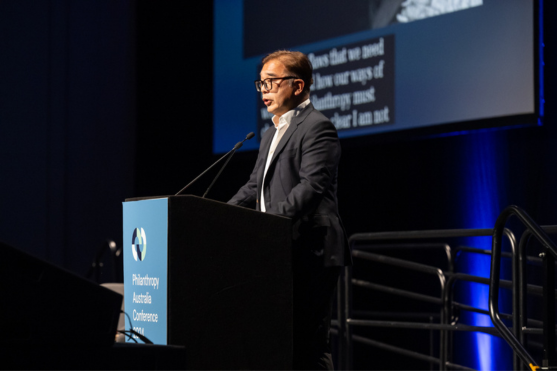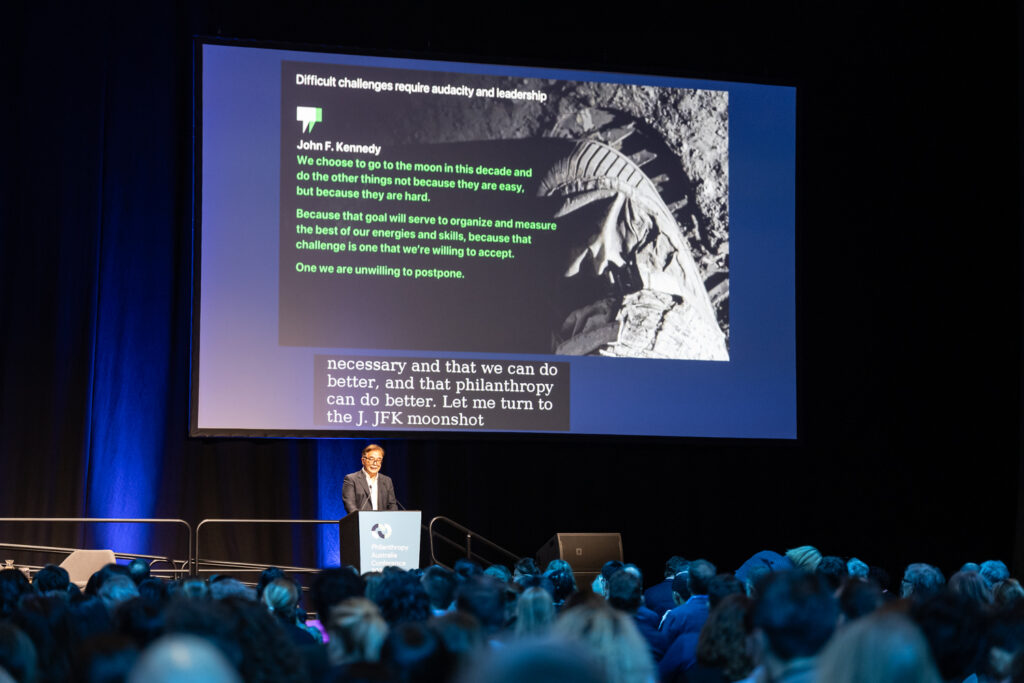James Chen’s Moonshot Philanthropy: Your questions answered

One of the most inspiring plenary sessions at the Philanthropy Australia Conference was James Chen’s talk on Moonshot Philanthropy. The audience responded with many questions, but time ran out to answer them – until now. James replies to three of the inquiries posed after his presentation. This is clearly a conversation the audience wanted to continue.
Watch James Chen’s plenary session – Moonshot Philanthropy: freedom to take risks is the ultimate superpower.
1. Have you found a family foundation has been a great crucible for Moonshot Philanthropy because of its unifying purpose, inspirational challenge and long-term, maybe multi-generation timeframe?
A family foundation could be a great crucible for Moonshot Philanthropy, but it would need to have extremely good governance and a highly conscientious board and management all passionate and unified in weathering the inevitable setbacks and failures that come with deploying high risk-taking capital. If a family foundation consistently allocated a percentage of its giving budget into a high-risk taking bucket and pledged to dedicate this risk bucket spending towards solving an issue for as long as it took, this compartmentalisation might be enough to insulate the loss of nerve some decision-makers might feel before the light at the end of the tunnel is apparent.

2. Do you have any suggestions for how you told your story to attract supporters and build momentum?
It has been the gathering of people that propelled my campaign to where it is today. One of the defining moments in the Clearly Campaign was a summit we held in Murano. We brought together leaders of the eyecare sector from around the world, along with influential campaigning figures, such as Kirsty McNeill from Save the Children, Comic Relief’s Kevin Cahill and Downing Street’s former director of communications Alastair Campbell.
Throughout the three days, the summit became a hyper-brainstorming event with an electric energy. We established vision correction as the ‘golden thread’, running through all of the SDGs – it was this moment that vision correction went from a health issue to a development one.
There is a great deal that can be said for the power of convening people, tapping into their expertise and provoking conversations that otherwise wouldn’t take place.
3. You’ve had a monumental impact on a cause that, to some extent, affected you directly. How important is lived experience in creating lasting change?
My own experience meant I could personally empathise with the issue of poor vision and its impact. I first became aware of my poor vision when I failed my driving test and, having grown up in Nigeria, I noticed the disparity in the number of people wearing glasses there and in the developed countries. This experience galvanised my thinking behind Vision for a Nation and the Clearly Campaign. However, this was ultimately fueled by my fundamental belief in a workable and realisable solution. This is what has sustained the campaign to create the change in the eyecare sector that we see today.
Watch: The full program of plenary session videos from the Philanthropy Australia Conference are available to view on our website.